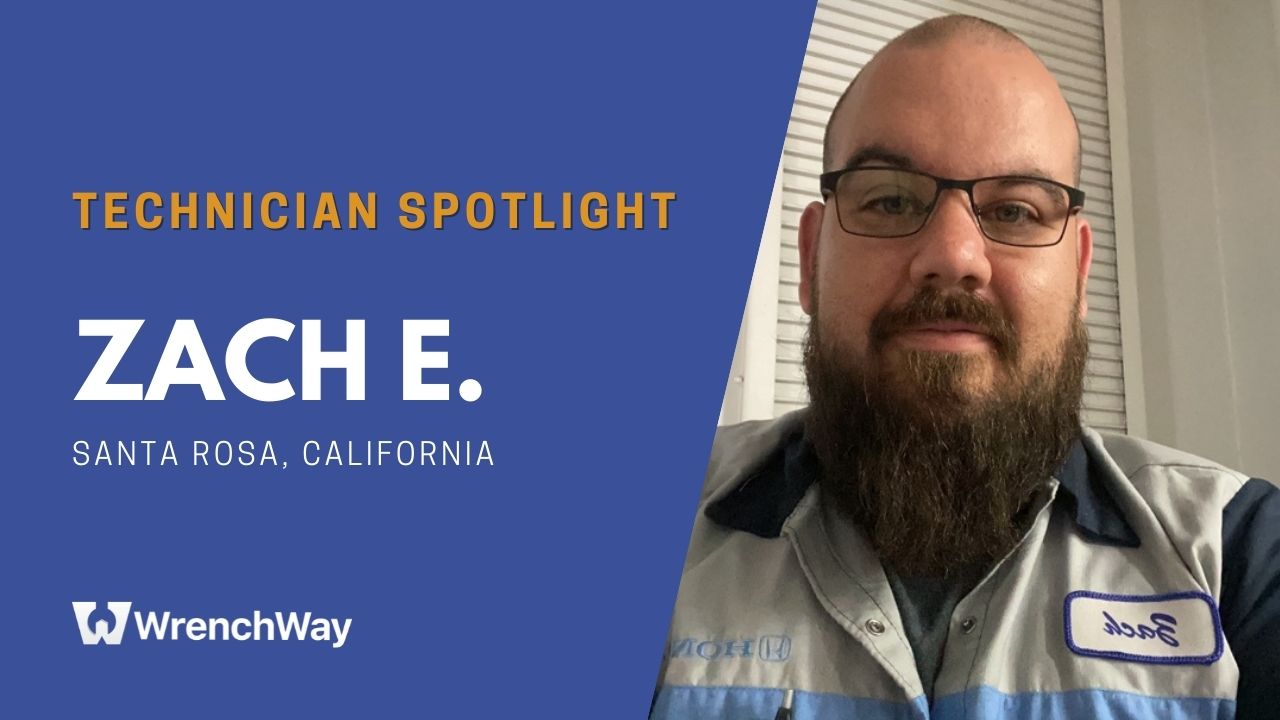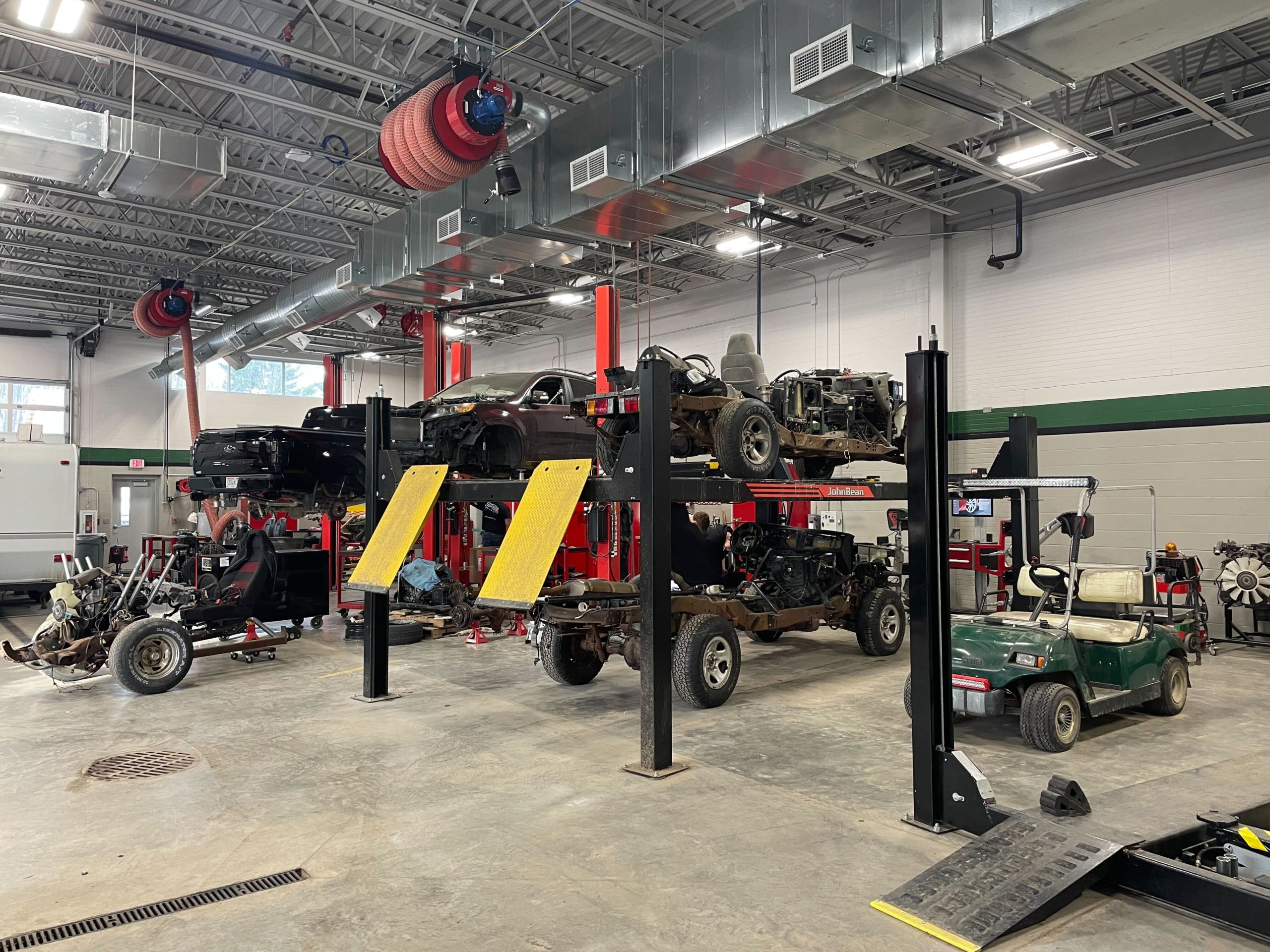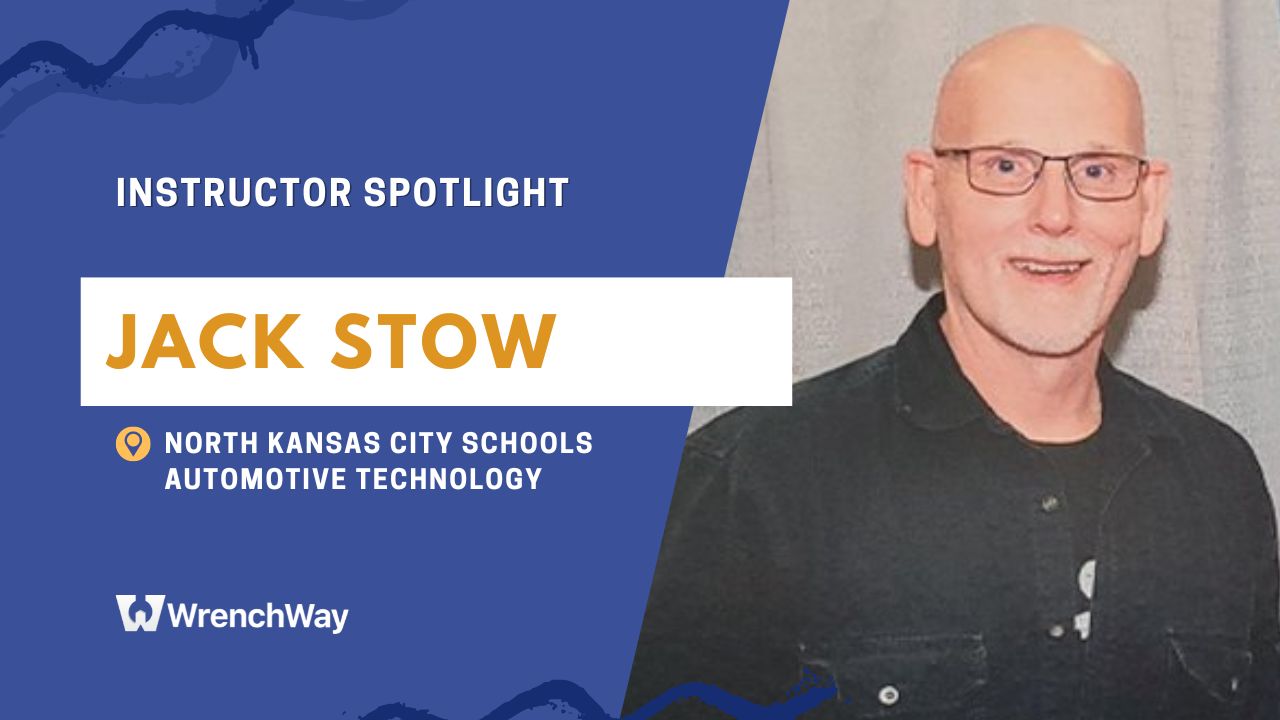This article is part of an ongoing series to highlight and promote the technician career — demonstrating to kids, parents, and teachers how becoming a technician is a rewarding career path that can be lucrative and open the door to many opportunities within the industry. Are you a technician who would like to be spotlighted? Sign up!
Technician Spotlight: Zach E.
Name: Zach E.
Location: Santa Rosa, California
Job Title: Automotive Technician
Industry Experience: 10 Years
How did you get started in the automotive industry?
I got into the automotive industry when I was 19. I went to trade school for a year and a half and got a job while I was in school working at a Toyota dealership. I moved out of state and started working at a Firestone doing small repairs. I quickly became one of their co-foremans because I had a lot of experience and ASE certifications. Then, I worked at an independent shop for quite a while and worked at John Deere for a year — really bouncing around to see where I fit. While working, I was getting as many certifications as I could to make sure I was the best technician I could be. Now, I’m working at a Honda dealership that is also a Hyundai dealership. Currently, I’m training to be a Hyundai master technician. I’m going to be doing a lot of in-depth work, and we are going to start an apprenticeship program for new technicians. I get to be involved in the program, which is very exciting.
How will the apprenticeship program at your shop work?
I brought it to the attention of my service manager because we have a lot of guys that are coming into the industry, but a lot of them don’t have any automotive experience. It is not good for our customers because we have guys that don’t necessarily know everything to look for during simple tasks, like a routine oil change. It leaves us with technicians that don’t really have a way to learn, and they aren’t learning skills they will need someday when they are at a higher level. I suggested we train and teach these technicians and take advantage of the slow time we have right now. We can get new technicians paired up with experienced technicians and have them observe and learn. Even simple jobs like oil changes: Walk them through how a higher level technician would do one of these smaller jobs, how they would go about looking for other concerns a customer might not know they have, or even recommend services that make sense for their vehicle. The goal is to have an apprenticeship program where the higher level technician will have the lower level technician do a lot of the work, but guide them through the process.
Do you think there has been a disconnect between schools and shops?
I feel tech school never really prepared me for the day-to-day repairs in the shop. Schools concentrate a lot on engine operation, electrical systems, and teach you the fundamental building blocks. Not one time did my school show me how to do timing belts, but I learned how to rebuild a 350 small block about five different times. A lot of the training we get in the industry is on-site and through job training. Most of the time, it wasn’t in a classroom.
How can we keep technicians up-to-date with the new technology?
They do a really good job at the dealership level about coming out with new modules and videos that give us a brief description on what they are planning to do with the newer models. It’s really helpful, and I think shops need to put a lot more effort into the guys at the lower end of the totem pole. It’s no secret; industry-wide we’re suffering. For every five technicians that are leaving the industry, only about one or two are coming back into the industry.
What is your favorite part of being a technician?
My favorite part is when a customer comes in with a concern, and they just have this look of worry. They don’t know what is going on with their car, and you have the opportunity to help them. I love it when the customers want to talk to the technician and not just service managers, and I can go out there and set their mind at ease. Let them feel listened to, and be able to help someone out who thought their world was over. That is one of the best parts of my job.
What has being a technician taught you most/ What skills has your career given you?
I think the best skill I use every day is, not only am I a technician at work, but I am also a technician at home. If something is wrong with my car, I have the ability to fix it, and it saves a lot of money. It takes road trip worry out of your mind completely because you know you have the skills you need to be able to take care of yourself. I think it is a very important life skill to know the basics.
What do you wish more people, especially high schools, knew about the profession?
One of the biggest mistakes they make at the high school level is taking away automotive programs. It’s important to teach high school students how to do simple repairs. You’re not only teaching future technicians, but you’re teaching future drivers. It makes them a little more cognitive when they’re driving, and gets them more concentrated on driving itself. We have to start getting people interested in these careers, and teach them it’s not only ok to be a technician, but it’s ok if you’re not a doctor or lawyer. There are jobs that are just as important that may interest them more, and it’s important they understand those things are out there. I think one of the biggest problems with us running out of technicians in the field is people are trying to push for doctors, lawyers, YouTube stars, whatever it may be, and there are not a lot of manual laborers out there.
How do you think as a society and school system we can broadcast this as a great career choice?
Education. We need to have a program to demonstrate to people what we are actually doing in vehicles these days. Educate them on what kind of technology we can expect in the next 5-10 years. Right now, electronic vehicle technology is booming. The public may not know it, but there’s so many more manufacturers going electric within the next three years. It is more computer and technology-based than it has ever been. There are more jobs within the industry beside working on cars you can get into. There is engineering, research and development, diagnostics, programming, all kinds of things you can be a part of.
What would you say to someone who is trying to decide if this is a good career path?
Do the training they ask you to do. Get involved in the ASE certifications to stay up on your knowledge and training because you can take those certifications anywhere. If you move out of the state, you’re still ASE-certified. That is something that is really important, and never stop trying to learn because there is always more.





